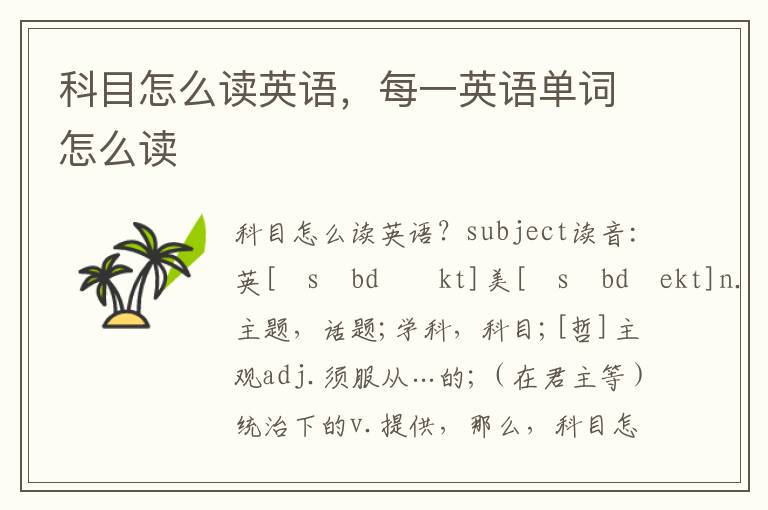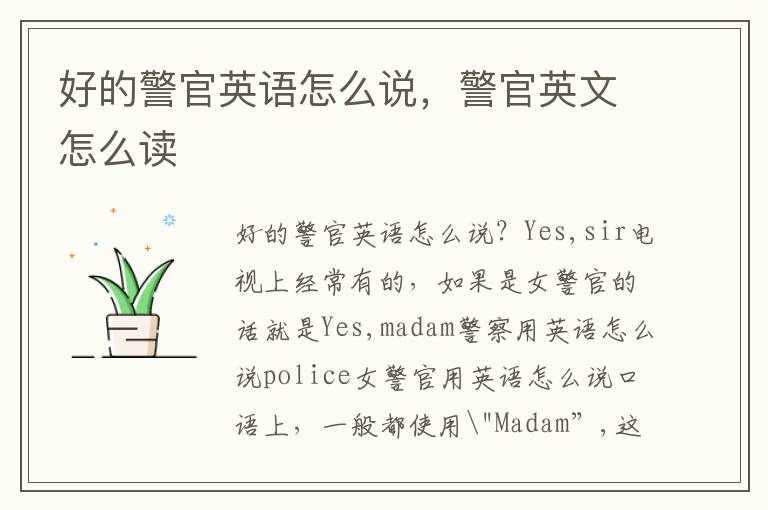【简介】感谢网友“雕龙文库”参与投稿,这里小编给大家分享一些[db:SEO标题],方便大家学习。
Southeast Asia’s top diplomat has warned that the South China Sea disputes risk becoming “Asia’s Palestine, deteriorating into a violent conflict that draws sharp dividing lines between nations and destabilises the whole region.
东盟最高层外交官警告,南海纠纷可能成为“亚洲的巴勒斯坦,即形势不断恶化,酿成一场武力冲突,使国与国之间形成尖锐对立,破坏整个地区的稳定。
Surin Pitsuwan, the outgoing secretary-general of the 10-member Association of Southeast Asian Nations, told the Financial Times that Asia was entering its “most contentious period in recent years as a rising China stakes out its claim to almost the entire South China Sea, clashing with the Philippines, Vietnam and others.
即将离任的东南亚国家联盟(ASEAN)秘书长素林·比素万(Surin Pitsuwan)对英国《金融时报》表示,亚洲正进入近年来“最具争议的时期,不断崛起的中国主张其对几乎整个南海拥有主权,与菲律宾、越南和其它国家发生矛盾。东盟有10个成员国。
“We have to be mindful of the fact that the South China Sea could evolve into another Palestine, if countries do not try harder to defuse rather than inflame tensions, he said.
比素万表示,如果有关国家不付出更大努力化解(而非加剧)紧张局势,“我们必须记住一个事实,即南海可能演变成又一个巴勒斯坦。
As it has grown economically and militarily more powerful, Beijing has become more assertive about its territorial claims in the South China Sea, which encompasses vast oil and gas reserves, large fish stocks and key global trade routes.
随着中国在经济上和军事上变得更加强大,北京方面在坚持自己的南海领土主张方面也变得更加强硬。南海蕴藏着巨大的石油和天然气储量,还拥有丰富的渔业资源和关键的全球贸易航道。
After naval clashes with Vietnam and the Philippines – which claim parts of the South China Sea alongside Brunei, Malaysia and Taiwan – China has further angered its neighbours by printing a map of its extensive maritime claim, known as the “nine-dotted line in new passports.
越南、菲律宾、文莱、马来西亚和台湾都宣称对南海的一部分拥有主权。在与越南和菲律宾发生海上冲突后,中国作出了激怒邻国的进一步举动:新版中国护照印有凸显中国庞大海上主权主张的“九段线地图。
Vietnam has hit back by marking the passports of visiting Chinese as “invalid and issuing separate visa forms rather than appearing to recognise the Chinese claim by stamping passports.
越南已采取回击措施,在入境的中国人护照上加盖“无效印章,同时另行签发签证表格,而非在中国护照上盖章,以免被视为默认中国的主张。
The US has responded to a resurgent Beijing by refocusing its foreign policy on Asia and building closer strategic and military ties with old foes such as Myanmar and Vietnam, which also fear the consequences of potential Chinese hegemony in the region.
针对越来越强大的中国,美国的回应是将外交政策的焦点重新转向亚洲,并且与昔日的敌手(如缅甸和越南)打造更紧密的战略和军事联系,这些国家也担心潜在的中国在亚洲实行霸权主义的后果。
Squeezed between these two great powers, southeast Asian nations will come under growing pressure to take sides unless they can stay united, said Mr Pitsuwan, a Thai diplomat who will step down next month after five years as the head of Asean.
比素万是一名泰国外交官,他在担任东盟秘书长5年后,将在下月离任。他表示,夹在美中这两个大国中间的东南亚国家,除非保持团结,否则将受到越来越大的压力,要求它们“站队。
He argued that the deteriorating situation in the South China Sea was the result of “the internal dynamics of China, with Beijing focused on upholding its sovereignty and territory because of the recent leadership change, growing prosperity and a sense that the state-building process was still under way.
他提出,南海形势恶化是“中国内部局势的结果,北京方面专注于坚持本国的主权和领土主张,具体原因包括最近的领导层换届,中国越来越富裕,以及中国方面有关建国过程仍在进行中的意识。
Asean, which is the only high-level forum for security issues in Asia, has fallen into disarray this year as Cambodia, a close Beijing ally and the chairman of the organisation, has undermined efforts by the Philippines and Vietnam to form a consensus about how to respond to China’s assertive stance.
作为亚洲唯一的安全问题高层论坛,东盟在今年陷入混乱。菲律宾和越南曾试图在如何应对中国强硬姿态问题上达成共识,但中国的密切盟友、东盟轮值主席国柬埔寨破坏了这方面的努力。
“Cambodia has to balance itself within an increasingly tense power play, said Mr Pitsuwan. “I think Cambodia did what it had to do – you have to look at it from their perspective.
“柬埔寨不得不在越来越强烈的大国角力背景下把握自己的立场,比素万表示。“我认为柬埔寨做了它不得不做的事——你必须从他们的视角来看待这个问题。
He added that the best hope for avoiding conflict was for Asean and China to agree on a binding code of conduct that would discourage nations from trying to seize islands, oilfields and fishing grounds in order to back up their territorial claims.
他补充说,避免冲突的最佳希望是由东盟和中国达成具有法律约束力的南海行为准则,阻止有关国家为了坚持自己的领土主张而试图夺取岛屿、油田和渔常
But this would be challenging given that Asia’s political institutions and dispute-resolution mechanisms were still very under-developed relative to the growing region’s economic might.
但是,相对于亚洲不断增长的经济实力,该地区的政治机构和争端解决机制仍极不成熟,有鉴于此,要达成行为准则是颇具挑战的。
Southeast Asia’s top diplomat has warned that the South China Sea disputes risk becoming “Asia’s Palestine, deteriorating into a violent conflict that draws sharp dividing lines between nations and destabilises the whole region.
东盟最高层外交官警告,南海纠纷可能成为“亚洲的巴勒斯坦,即形势不断恶化,酿成一场武力冲突,使国与国之间形成尖锐对立,破坏整个地区的稳定。
Surin Pitsuwan, the outgoing secretary-general of the 10-member Association of Southeast Asian Nations, told the Financial Times that Asia was entering its “most contentious period in recent years as a rising China stakes out its claim to almost the entire South China Sea, clashing with the Philippines, Vietnam and others.
即将离任的东南亚国家联盟(ASEAN)秘书长素林·比素万(Surin Pitsuwan)对英国《金融时报》表示,亚洲正进入近年来“最具争议的时期,不断崛起的中国主张其对几乎整个南海拥有主权,与菲律宾、越南和其它国家发生矛盾。东盟有10个成员国。
“We have to be mindful of the fact that the South China Sea could evolve into another Palestine, if countries do not try harder to defuse rather than inflame tensions, he said.
比素万表示,如果有关国家不付出更大努力化解(而非加剧)紧张局势,“我们必须记住一个事实,即南海可能演变成又一个巴勒斯坦。
As it has grown economically and militarily more powerful, Beijing has become more assertive about its territorial claims in the South China Sea, which encompasses vast oil and gas reserves, large fish stocks and key global trade routes.
随着中国在经济上和军事上变得更加强大,北京方面在坚持自己的南海领土主张方面也变得更加强硬。南海蕴藏着巨大的石油和天然气储量,还拥有丰富的渔业资源和关键的全球贸易航道。
After naval clashes with Vietnam and the Philippines – which claim parts of the South China Sea alongside Brunei, Malaysia and Taiwan – China has further angered its neighbours by printing a map of its extensive maritime claim, known as the “nine-dotted line in new passports.
越南、菲律宾、文莱、马来西亚和台湾都宣称对南海的一部分拥有主权。在与越南和菲律宾发生海上冲突后,中国作出了激怒邻国的进一步举动:新版中国护照印有凸显中国庞大海上主权主张的“九段线地图。
Vietnam has hit back by marking the passports of visiting Chinese as “invalid and issuing separate visa forms rather than appearing to recognise the Chinese claim by stamping passports.
越南已采取回击措施,在入境的中国人护照上加盖“无效印章,同时另行签发签证表格,而非在中国护照上盖章,以免被视为默认中国的主张。
The US has responded to a resurgent Beijing by refocusing its foreign policy on Asia and building closer strategic and military ties with old foes such as Myanmar and Vietnam, which also fear the consequences of potential Chinese hegemony in the region.
针对越来越强大的中国,美国的回应是将外交政策的焦点重新转向亚洲,并且与昔日的敌手(如缅甸和越南)打造更紧密的战略和军事联系,这些国家也担心潜在的中国在亚洲实行霸权主义的后果。
Squeezed between these two great powers, southeast Asian nations will come under growing pressure to take sides unless they can stay united, said Mr Pitsuwan, a Thai diplomat who will step down next month after five years as the head of Asean.
比素万是一名泰国外交官,他在担任东盟秘书长5年后,将在下月离任。他表示,夹在美中这两个大国中间的东南亚国家,除非保持团结,否则将受到越来越大的压力,要求它们“站队。
He argued that the deteriorating situation in the South China Sea was the result of “the internal dynamics of China, with Beijing focused on upholding its sovereignty and territory because of the recent leadership change, growing prosperity and a sense that the state-building process was still under way.
他提出,南海形势恶化是“中国内部局势的结果,北京方面专注于坚持本国的主权和领土主张,具体原因包括最近的领导层换届,中国越来越富裕,以及中国方面有关建国过程仍在进行中的意识。
Asean, which is the only high-level forum for security issues in Asia, has fallen into disarray this year as Cambodia, a close Beijing ally and the chairman of the organisation, has undermined efforts by the Philippines and Vietnam to form a consensus about how to respond to China’s assertive stance.
作为亚洲唯一的安全问题高层论坛,东盟在今年陷入混乱。菲律宾和越南曾试图在如何应对中国强硬姿态问题上达成共识,但中国的密切盟友、东盟轮值主席国柬埔寨破坏了这方面的努力。
“Cambodia has to balance itself within an increasingly tense power play, said Mr Pitsuwan. “I think Cambodia did what it had to do – you have to look at it from their perspective.
“柬埔寨不得不在越来越强烈的大国角力背景下把握自己的立场,比素万表示。“我认为柬埔寨做了它不得不做的事——你必须从他们的视角来看待这个问题。
He added that the best hope for avoiding conflict was for Asean and China to agree on a binding code of conduct that would discourage nations from trying to seize islands, oilfields and fishing grounds in order to back up their territorial claims.
他补充说,避免冲突的最佳希望是由东盟和中国达成具有法律约束力的南海行为准则,阻止有关国家为了坚持自己的领土主张而试图夺取岛屿、油田和渔常
But this would be challenging given that Asia’s political institutions and dispute-resolution mechanisms were still very under-developed relative to the growing region’s economic might.
但是,相对于亚洲不断增长的经济实力,该地区的政治机构和争端解决机制仍极不成熟,有鉴于此,要达成行为准则是颇具挑战的。









